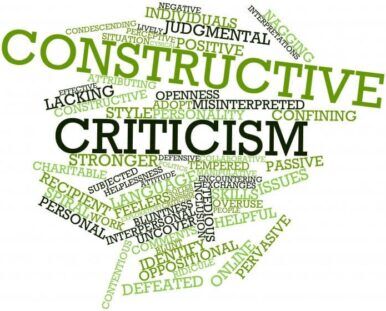Embracing criticisms as beneficial input from those genuinely invested in your growth is essential, but it requires a mature mindset to accept constructive criticism with the right intentions. Although humans generally resist criticism due to an innate pursuit of perfection, individuals with understanding appreciate the value of constructive feedback, as captioned by entreprenuerng.com
Distinguishing between constructive and destructive criticism poses a challenge. Constructive feedback aims to guide improvement, offering specific suggestions and highlighting areas for growth. Conversely, destructive criticism carries negative energy, lacking guidance and potentially harming confidence and self-esteem.
Factors contributing to destructive criticism include insecurity, jealousy, frustration, communication skills, personal biases, and unresolved issues. Online interactions, often fueled by anonymity, can amplify negative comments, with some individuals feeling immune to accountability.
Effectively managing destructive criticism involves responding calmly, analyzing feedback objectively, and extracting constructive elements. Evaluating the credibility of the source and seeking clarification when necessary are vital steps. Recognizing that not all criticisms warrant a response and building resilience are crucial strategies. Viewing criticism as an opportunity for growth, focusing on valid points, and seeking support from trusted friends or mentors contribute to effective management.

Criticisms
Handling destructive criticism from loved ones requires additional sensitivity due to emotional bonds. Strategies include avoiding defensive reactions, expressing feelings without accusation, seeking understanding through clarification, setting boundaries against hurtful comments, finding common ground, choosing an appropriate time for discussion, and encouraging constructive feedback. Professional help, such as therapy or counseling, becomes an option if negative criticisms strain the relationship. Ultimately, managing destructive criticism is about preserving emotional well-being while extracting valuable insights for personal and professional development through open communication and understanding.










